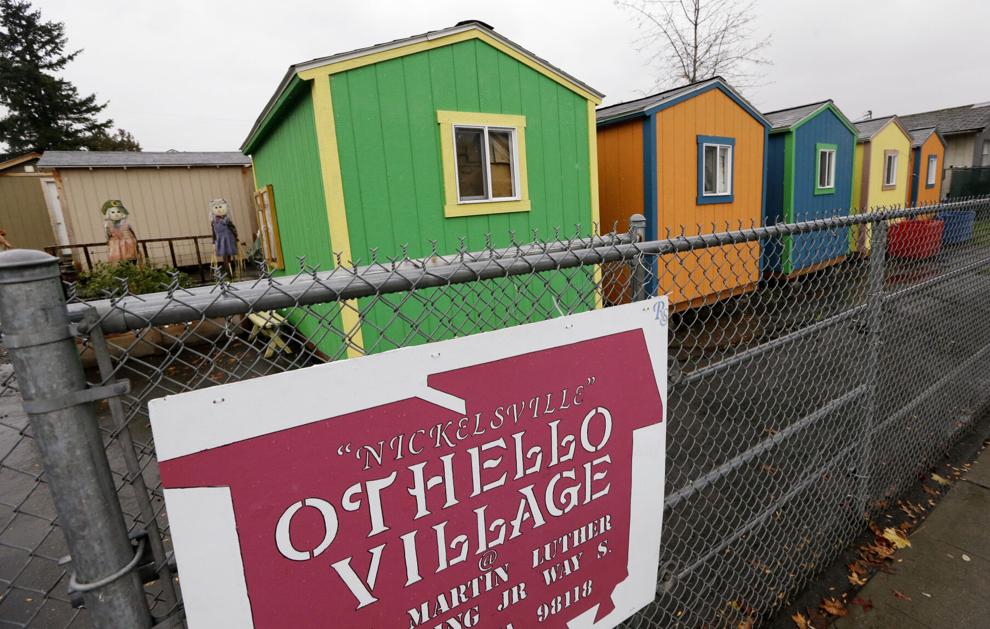Seattle’s housing-first approach to homelessness hindered by opioid crisis
By Spencer Pauley | Mar 14, 2024

In this photo taken Thursday, Nov. 9, 2017, a line of tiny houses stand with their backs to the adjacent street at a homeless encampment in Seattle. Tiny homes could be the solution to all kinds of housing needs, offering warmth and security for the homeless, an affordable option for expensive big cities and simplicity for people who want to declutter their lives. However, that seemingly broad support fails to translate into acceptance when tiny home developers try to build next door. (AP Photo/Elaine Thompson)
(The Center Square) – Seattle officials are doubting the housing-first approach to address the homelessness crisis within the city.
At Wednesday’s Seattle Housing & Human Services Committee meeting, city staff briefed the city council on the Seattle Unified Care Team’s progress in keeping homeless tent and RV statistics down while keeping streets clean and accessible.
The Seattle Unified Care Team’s approach to homelessness is based on coordinated, strategic and data-driven action. The team has a shared goal of ensuring Seattle’s public spaces, sidewalks and streets remain open and accessible to all.
During the meeting, Seattle Deputy Mayor Tiffany Washington said that the fentanyl and behavioral health crises have impacted the city’s housing-first approach.
“The ‘housing-first’ model says someone should not be required to be clean before they receive housing; we totally agree with that, but if we want that person to stay housed, we have to couple that with some serious services,” Washington said at the committee meeting. “So the system currently, in my humble opinion, isn’t designed to address the mass behavioral health crisis.”
In 2023, the King County Regional Homelessness Authority passed its five-year plan seeking to increase housing stock as a solution to the growing homelessness crisis the county is experiencing.
The King County Regional Homelessness Authority’s plan estimates a potential cost of $450 million to $1.1 billion per year over the next 10 years in order to increase housing as a solution to homelessness.
“It would be a fallacy to just build more permanent housing and not build places that address what we see on the streets,” Washington added.
The Unified Care Team accepted 2,204 shelter referrals in 2023, which is up from 1,831 in 2022 and 1,203 in 2021.
The total number of verified shelter enrollments in 2023 was 970, which is up from 746 in 2022 and 576 in 2021, according to a news release from the city.
In the fourth quarter of 2023 alone, the Seattle Unified Care Team extended a total of 1,228 offers of shelter to unsheltered individuals from which 462 offers were accepted, resulting in a referral to shelter.
Despite the success that the Unified Care Team has seen in getting some people into shelter, Washington noted that homeless outreach workers do not feel safe when working during certain hours of the night.
The Unified Care Team is also limited in places where members can address encampments. Most notably, Seattle does not have jurisdictional authority to address homeless encampments located on property owned by the Washington State Department of Transportation. Washington noted that there were 845 reported crimes on these properties in 2023.
The King County Regional Homelessness Authority works with WSDOT to address homelessness on the state-owned properties.
The Center Square previously reported that the Unified Care Team documented 523 tents and 227 RVs located throughout the city at the end of 2023.